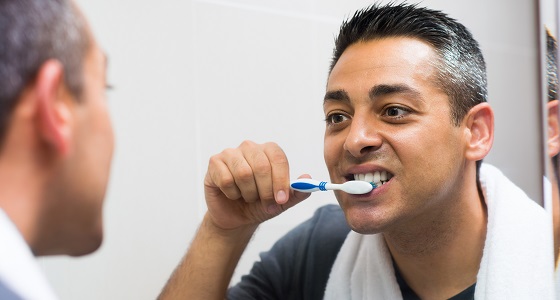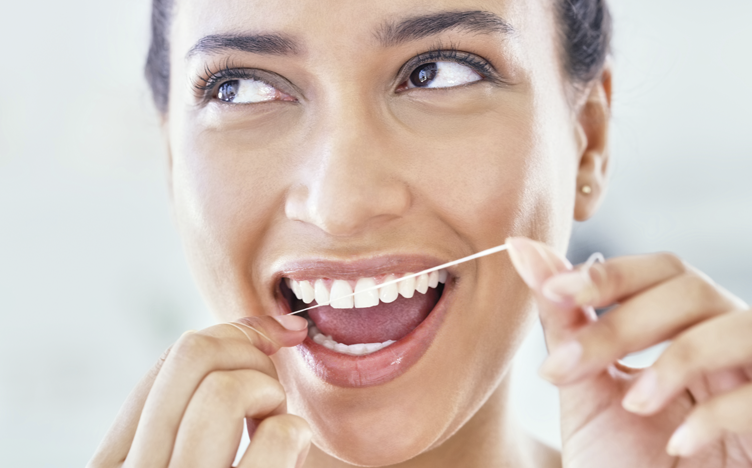"Why do my gums bleed when I brush or floss?"
Readers ask, we answer: What to do when your gums bleed
Kathy asks:
Have a question you’d like us to answer? Send it to grin@deltadental.com, and it could be featured in an upcoming issue.
Hi, Kathy! If you’re seeing red, don’t panic. It’s not uncommon to notice a little blood when you brush or floss your teeth. Let’s take a look at possible causes, which range from your technique and frequency to your health status and the medications you take.
Do you need to adjust your daily regimen?
You may need to evaluate your brushing and flossing habits to find out if they could be improved. Test yourself with four questions:
• Are you brushing and flossing regularly? Dentists recommend brushing twice a day and flossing at least once a day. If you don’t, this allows bacteria and plaque to form, which inflames your gums and can cause bleeding. However, this should stop when your gums get used to your flossing routine.
• Are you brushing and flossing thoroughly? If you don’t brush and floss thoroughly, you can miss the same areas repeatedly. Those areas can become inflamed and bleed when you do reach them. Brush for a full two minutes and thoroughly clean around every tooth.
• Are you brushing or flossing too vigorously? Using too much force can cause gums to bleed. Be gentle when you brush and floss. With light pressure, you can clean the surfaces of the tooth above and below the gumline.
• Are you using the right toothbrush? If you use a toothbrush with firm bristles and it seems to irritate your gums, ask your dentist if you should replace it with a soft-bristled model.
Are health issues contributing factors?
You may be at risk for bleeding gums during your brushing and flossing sessions due to health issues or if you’re taking certain medications.
During menstruation and pregnancy, you’ll have hormonal changes that increase the flow of blood to the gums. This can make them more sensitive and lead to inflammation and bleeding.
If you have gum disease such as gingivitis or periodontitis, your gums may be inflamed, sensitive, swollen and tender and more likely to bleed.
If you’re taking medicine that thins your blood and reduces clotting, such as aspirin, this can cause your gums to bleed more easily.
What preventive measures can you take?
What can you do to stop the bleeding? Here are three recommendations:
• Maintain a balanced diet. Vitamin C is essential for healthy gums. Get your daily servings by adding strawberries, broccoli, Brussels sprouts, potatoes and bell peppers to your grocery list.
• Eat leafy greens. Improve your oral health by eating kale and spinach, which are rich in vitamin K. You can include leafy greens in a side salad for a lunch or dinner entrée.
• Floss daily. You can prevent plaque from building up between your teeth and reduce your risk of cavities and gum disease.
Follow this four-step guide for flossing:
1. Start with 18 to 24 inches of floss.
2. Use your thumb and index finger to guide the floss between each tooth.
3. Hold the floss tightly around each tooth in a C shape, moving the floss up and down against the sides of each tooth.
4. Repeat with each tooth, and don’t forget to floss behind your back molars.
By brushing twice a day, flossing daily and maintaining a balanced diet, you can reduce the likelihood that you’ll be seeing red. If your gums continue to bleed, talk with your dentist.
Is your oral health endangering your lungs?
Poor oral hygiene can increase bacteria that can lead to respiratory disease.
A thin thread with a long history
Originally made of silk, dental floss is a vital part of your dental health routine that you should know more about.
Is nitrous oxide the right solution for you?
Dental visit jitters aren’t as uncommon as you may think.










